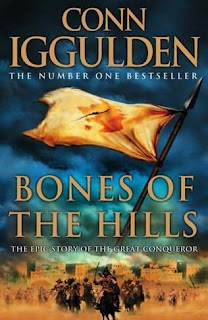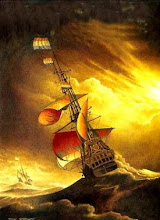 Great conclusion to a brilliant trilogy.
Great conclusion to a brilliant trilogy. `I am the land and the bones of the hills. I am the winter.'
Genghis Khan is the powerful leader of a nation united from the tribes and victorious in the long war against the Chin, the Mongolians' ancient fow. But now trouble arises from another direction. His embassies to the west are rebuffed, his ambassadors killed or mutilated.
So Genghis and his armies, led by his brothers and trusted generals, embark on their greatest journey, through present day Tibet, Iran and Iraq and on to the shores of the Mediterranean. Conquering city after city, one empire after another, by battle, by the siege warfare they have learnt from the Chin, by fear and by persuasion, the Mongolian power stretched over the entire region.
Genghis Khan conquered a greater empire than any other man. This achievement was made even more extraordinary as during these years, over these campaigns, his sons as well as his brothers were vying for his favour, for the right to lead the most successful of his armies, to bring in the greatest conquests, to achieve the succession.
He had already proved himself a great warrior. Now the challenge is to show himself as an outstanding ruler for his people and that rare leader, one who can manage his succession.
This is the final book of the Conqueror trilogy and maybe the best one of the series. This is high praise indeed because the other two books where excellent as well.
In this book Genghis turns his ‘attention’ to the West – to Muslim Central Asia. A governor of these lands killed the envoys that where send there by Genghis’ brother. Genghis, never a man for envoys and negotiations himself, is outraged and decides to teach the governor and his Shah a lesson.
This results in another book full of military strategism, intrigue, bloody battles, cruelty & heroism – and as always Iggulden’s writing style puts the reader right there in the front lines; feeling the sand between the teeth, seeing the blood and the guts and smelling the horses.
What made this book even deeper than the previous installments is the further development of the characters we already came to love or hate, like Genghis’ brothers Khasar, Kachiun and Temuge, the shaman Kokchu, the generals Tsubodai, Jelme and Arsan. Also important in this book is the story of the sons of Genghis. We especially get to see the struggle between the oldest two sons: Jochi, the brave but bitter eldest son of who Genghis doubted if he was really a trueborn son or a bastard as a result of the rape Genghis’ wife had to endure during an abduction by a band of Tartar raiders; and Chagatai, the treacherous second son looking to usurp the position of his elder brother, who by rights of birth, should inherit his father’s position. Here we get to see Genghis at his most vulnerable. He is the great leader, the cold and calculating strategist and ruthless conqueror, but also the father who has mixed feelings about his sons and who doubts his own ability to do the right things regarding their upbringing. Especially the character of unwanted and unloved Jochi and his special connection to Genghis’ best General Tsubodai leads to heartbreaking developments. Good stuff!
Conclusion: the last installment in the Conqueror Trilogy is a must read not only for fans of historical fiction but also for anyone who loves an action packed tale of war and conquest. Be sure to read ‘Wolf of the Plains (Birth of an Empire) and ‘Lords of the Bow’ first!
9 / 10







